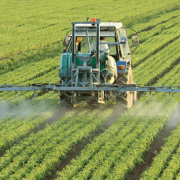The European Parliament, in favor of stricter controls on citrus imports
The plenary of the European Parliament, in a historic resolution, signed on 15th December the resolution adopted on 29/11/2016 by its Committee on Agriculture, an initiative of the Socialist Clara Aguilera, rejecting the draft of the European Commission, currently under discussion, on the safety of Community citrus plantations.
The Community chamber has called on the Commission to present phytosanitary protection measures really effective for European citrus fruits and to ensure stricter control of imports of this product
MEPs have determined that the measures proposed by the Commission to curb the entry into the EU of new pests affecting citrus fruits are not enough to protect European farmers. In its view, this proposal runs counter to the recommendations of the European Food Safety Authority (EFSA) and the political agreement reached by the European Parliament and the Council exactly one year ago in favor of strengthening the EU’s plant protection against the risk of contagion of pests from third countries.
The resolution ratified with 463 votes in favor, 168 against and 3 abstentions is opposed, as it is considered insufficient, to the European Commission’s proposal to amend Directive 2000/29 / EC (“plant health”) to change certain measures in against the spread of pests affecting citrus fruits through imports from third countries. The EP therefore urges the European Commission to propose alternatives that respect and prioritize the precautionary principle and phytosanitary safety of European citrus plantations. These include additional measures such as more controls, prior to packaging and entry into Community territory, cold treatments to kill larvae and improvements in the traceability of imported fruits.
This position of the EP comes to corroborate the requests that in recent months has been making the Spanish and European citrus sector, whose representatives have described it as “historical”
According to a joint press release from the Spanish citrus fruit sector, the “historic” importance of this parliamentary resolution lies in the fact that, “in the EU, the interest in preserving phytosanitary South, than the interests of importers and the industry of northern Europe. “It is a historic step because “MEPs, regardless of their political sign, have concentrated on warning of the risk that other pests – so dangerous as the Xyllella – enter the EU and cause very serious and irreparable damages.”
This is a historical position, because it is the first time, since the entry into force of the Lisbon Treaty, that Parliament objects to an implementing act of the Commission
Representatives of the Spanish citrus sector have acknowledged and appreciated the sensitivity and involvement of the European Parliament, with special emphasis on the hard work of the Spanish deputies of the Committee on Agriculture, to make this dossier a feat.
From the Spanish citrus sector it is hoped that this unprecedented resolution will reach the Commission as a clear and unambiguous message and will lead to the presentation of a new project
Thus, for the whole of the Spanish citrus fruit sector, “neither the Commission nor the Member States can now ignore the criterion of the whole European citrus sector, which is now that of Parliament”. In that sense, the new draft proposed by the Commission should inevitably introduce at least two fundamental changes. On the one hand, for the “Black Spot” and “Citrus canker” diseases, should be removed the possibility that the product imported into the Union from contaminated countries, theoretically destined to the manufacture industry, enter in Europe with less caution and control than those required for the product for fresh. A “parallel channel” – which the Commission is currently proposing – that would allow these citrus fruits, once inside the EU, to end up fresh in the market, creating an unacceptable danger.
On the other hand, in order for the introduction of the new pest -Thaumatotibia leucotreta- to be really effective, the product imported from contaminated countries must be subject to cold treatment or a method of equivalent efficacy objectively guaranteed by EFSA, and not to give by valid any other treatment decided unilaterally by the importer.
The European citrus sector produces about 11 million tonnes over some 600,000 hectares on which depend the economic development and employment of the producing regions, the maintenance of the landscape and the environment and the continuity of the associated industry and activity














